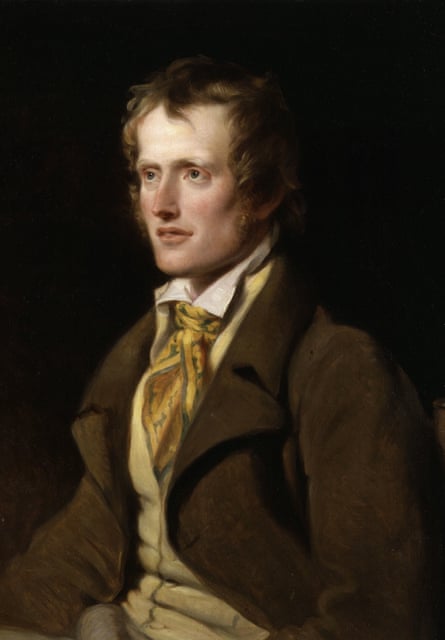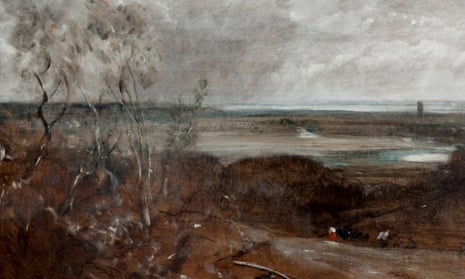An Invite to Eternity
Wilt thou go with me sweet maid
Say maiden wilt thou go with me
Through the valley depths of shade
Of night and dark obscurity
Where the path hath lost its way
Where the sun forgets the day
Where there’s nor life nor light to see
Sweet maiden wilt thou go with me
Where stones will turn to flooding streams,
Where plains will rise like ocean waves,
Where life will fade like visioned dreams
And mountains darken into caves.
Say maiden wilt thou go with me
Through this sad non-identity
Where parents live and are forgot
And sisters live and know us not
Say maiden wilt thou go with me
In this strange death of life to be
To live in death and be the same
Without this life, or home, or name
At once to be, and not to be
That was, and is not – yet to see
Things pass like shadows – and the sky
Above, below, around us lie
The land of shadows wilt thou trace
And look – nor know each other’s face
The present mixed with reasons gone
And past, and present all as one
Say maiden can thy life be led
To join the living to the dead
Then trace thy footsteps on with me
We’re wed to one eternity
“He had a song in the night,” a fellow patient at the Northampton Lunatic Asylum said affectionately of Clare, according to Jonathan Bate’s biography of the poet. Clare liked to sing, and few of his poems from the Northampton years are songless or joyless. Clare was not imprisoned: he took day-long walks, and observed and celebrated the surrounding countryside. Sometimes, though, the lyricism seems a mask of wishful thinking and wishful remembering. An Invite to Eternity is a song in a particularly shadowy night and shares a metaphysical, introspective angle with two of his other poems. These are the much-loved I Am (“I am yet what I am none cares or knows”), and the lesser-known sonnet often given the same title. The three, I think, stand among Clare’s masterpieces.
He produced more than 800 new poems between 1842 and 1856, most of them faithfully transcribed by WF Knight, the house steward at Northampton Asylum. The dating of most of these poems is uncertain, but Bate says that a copy of An Invite to Eternity was sent to Clare’s clockmaker friend Thomas Inskip in 1848.

Some of Clare’s titles, like most of his punctuation, were added by his editors, but if this one isn’t his own I’d be surprised. The twinning of the homely vernacular noun “invite” and the grand concept “eternity” seems deeply symbolic.
The pastoral genre where the rustic’s invitation to the maiden to go for a walk as a cover for romance and seduction is an ancient one. (Clare uses it in Meet Me in the Green Glen, a slightly cheerier poem.) At first, there’s nothing particularly arresting in the diction of An Invite to Eternity: “Wilt thou go with me sweet maid / Sweet maiden wilt thou go with me …” It’s only later that the repetitions will come to seem obsessive rather than melodic. The invitation is repeated, with delicate variation, three times in the first stanza, and the formulation “Say maiden wilt thou go with me” becomes a kind of wandering but insistent refrain.
In a text faithful to Clare’s minimalist punctuation, the omission of commas soon takes effect. It makes the speaker’s request seem oddly rushed and anxious, even before the path, in the third line, has dipped into the underworld.
At first, Clare’s valley of the shadow seems a mythologised, purgatorial landscape. The transformations offered are dramatic, almost biblical: stones become “flooding streams,” plains rise like waves, mountains become caves. Acutely conscious of man’s destructive encroachment on nature, Clare might almost be forecasting climate-change apocalypse. But the last three lines of stanza two reveal the internalised nature of the destination – “this sad non-identity”. The loss of a sense of self, foreshadowed by unnatural changes in the natural world, is equated with being neither dead nor alive, neither in the past nor the present. Clare enters this uncanny space via the loss of familiar people, places and time itself. The postmortem eternity will incur endless wandering.
Coleridge’s “night-mare life in death” comes to mind, but Clare’s brush with the gothic is lighter, of course. Modern readers might see a portrait of depression, or of old age and its social diminutions. Bate notes the Hamlet reference in the line “At once to be, and not to be”, and it might be significant that Clare, delusional or jesting, sometimes claimed to be William Shakespeare. Of course the question in the poem is about existence itself, and the life-in-death of self-negation. It’s not a deliberation about suicide.
Many editions of the poem add punctuation, but I prefer the flowing, stream-of-consciousness effect of its absence. And the lack of the question mark seems, importantly, to emphasise the lack of option for the “sweet maid” addressed. Both she and the speaker are all the more helplessly fated to walk the “valley of the shadow”.
Only the culminating idea that the as-if-dead speaker and the living maid will be wed in shared non-existence brightens the vista, (though not, perhaps, for the woman). The haunting repetitions have a lullaby quality, but there is no consolation. The loss of home, name and self is hardly “the peace that passeth understanding”, although it is accepted with quiet, strangely dreamy stoicism.
The qualities that make Clare a great pastoral and ecological poet are the same qualities underlying his interior documentary. He may begin with some borrowed romantic view and its conventional expression but he presses on beyond those limits. He reports what he sees, trying “to make his consceptions correct thinkings”, as he says in a little essay challenging the rigid application of English grammar. In the strange underworld of this poem, Clare is still the brave and faithful naturalist. And all the truer for the minimal grammar.
- Reproduced from John Clare, Major Works, edited by Eric Robinson and David Powell.

Comments (…)
Sign in or create your Guardian account to join the discussion